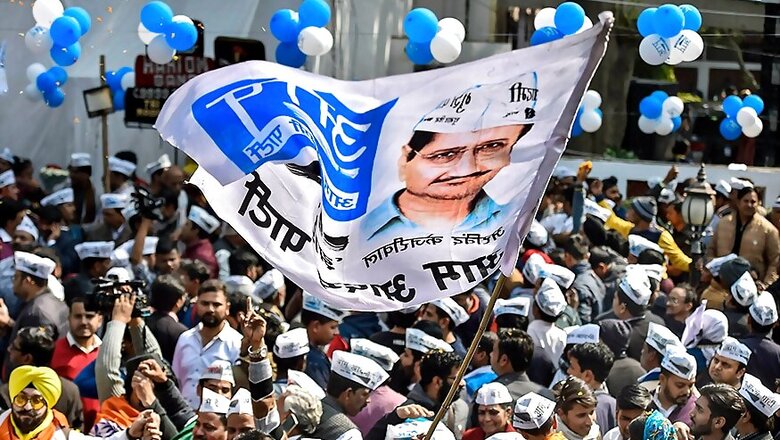
views
New Delhi: As it makes yet another sweep at the Delhi Assembly elections with its pro-poor policies, the Aam Aadmi Party (AAP), led by Arvind Kejriwal, is also well on its way to win all the reserved constituencies for the third time in a row.
Based on latest counting trends of the Election Commission of India (ECI), AAP's has won eight of the 12 seats reserved for Scheduled Castes and is leading in the remaining four.
Results of elections from 2008 onwards show AAP has wrested these seats mostly from the Congress. This shows that AAP continues to not only capture Congress’ original vote share in the city state, but has also consolidated it.
The 12 reserved seats in Delhi are Bawana, Sultanpur Majra, Mangol Puri, Karol Bagh, Patel Nagar, Madipur, Deoli, Ambedkar Nagar, Trilokpuri, Kondli, Seemapuri and Gokalpur.
In 2008, the Congress had won eight of the 12 reserved seats and the Bharatiya Janata Party (BJP) had won the remaining three.
However, since its entry, AAP has earned considerable success in all these constituencies. In its first Assembly election in 2013, it won nine reserved seats, while in the 2015 polls, it won all 12 of them.
AAP’s brand of politics that has used populism along with efficient delivery of services seems to have resonated once again in the 2020 elections.
Over the past five years, it initiated a slew of measures to consolidate its popularity, especially among the working classes and a large section of migrants. The party focused on improving access to and quality of education in government schools, provided free electricity up to 200 units of consumption and also strove to supply piped drinking water in unauthorised colonies.
Eight months ahead of the polls, the party also announced free travel for women in metro rail and buses.
Even as the free travel in Delhi Metro did not materialise, the same for Delhi buses proved to be another major vote catcher as it provided monetary benefit to many working women.

















Comments
0 comment